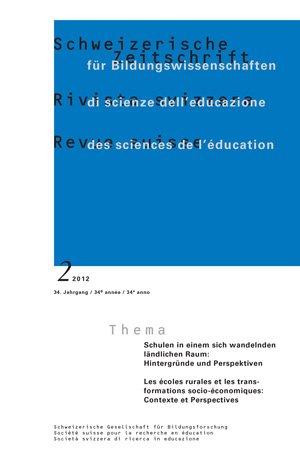«To govern meens to foresee»: dilemmas of regional and local politicians about the evolution of the Alpine regions and their schools
DOI:
https://doi.org/10.24452/sjer.34.2.4883Keywords:
Alps, school, school organization, school policies, school authoritiesAbstract
Today’s society is going through changes that challenge traditional benchmarks. No region is immune. Rural and alpine regions under focus here no longer form, on anamorphic maps, a thin line besides the expanding masses in urban centers. This paper aims to explore the significance of school in these areas in which changes occur so quickly. What do the school stakeholders at the decision-making levels, namely the regional and local politicians, think about that? How about the parents? How do they see their village, its school? How do they understand their relations with neighboring villages? The analysis of almost one thousand questionnaires and 44 interviews conducted with a large sample of actors from the fifty voluntary schools based in Graubünden, Vorarlberg and Upper Valais shows that actors’ positions may differ. While parents seem happy with the school organization, political authorities, on who depends the organization of alpine villages schools, have more contrasting positions. Grouped into three categories, some are related to the category of conservative, others to the pragmatics, and others to the visionaries. The question is will these positions impact, in the long term, on the existence of quality schooling (pedagogical) in the Alpine valleys.
Downloads
Downloads
Published
Issue
Section
License

This work is licensed under a Creative Commons Attribution 4.0 International License.



